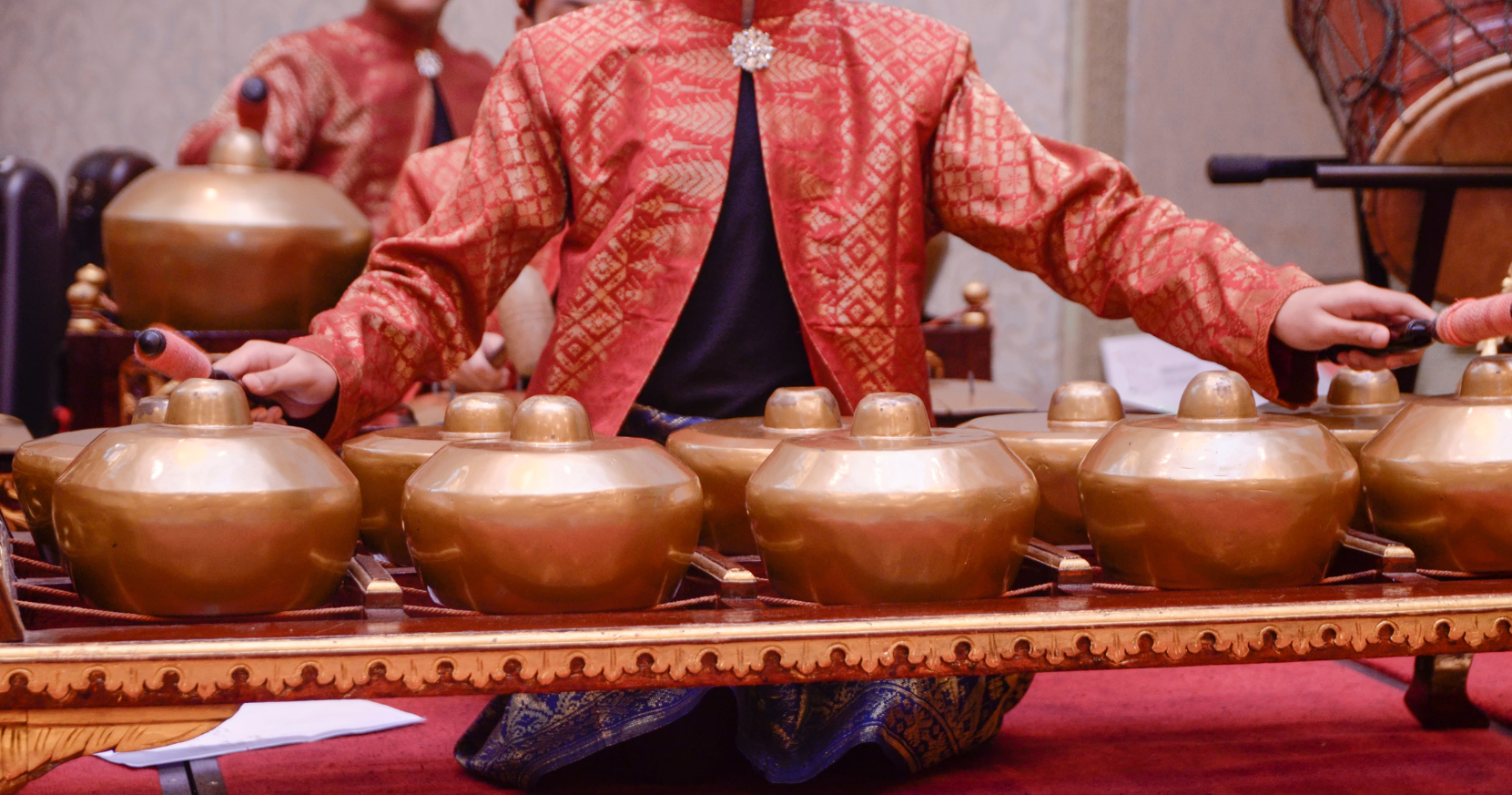
Also called gong-chime,Gamelan is an Indonesian musical ensemble dating back many centuries. Â The ensembles are composed primarily of percussion instruments, including gongs, xylophones, strings and drums, each instrument having its own unique function in the performance. Some ensembles include vocalists, as well.
Gamelan musicians play short, repeating melodies in an interlocking style. Musical phrases are repeated in various tempos and melodies until the musicians are signaled to stop, a task usually delegated to the drummer.
Three types of Gamelan are performed in Indonesia: Balinese, Javanese and Sundanese. Each style embraces slightly different sounds and tempos and is affiliated with the Indonesian "bangsa" (ethnic groups) of Bali, Central Java and Sunda (West Java) , respectfully.
Gamelan is said to have been the idea of the Hindu God, Sang Hyan Guru, who created a gong tuned to a specific pitch as a means of communicating with other Gods. As communication between the Gods became more complex, more "pitches"were needed, creating the Gamelan model of a variety of instruments with a variety of pitches, functions and tempos. To this day, Gamelan is considered an offering to the Hindu Gods. Ensembles perform during religious rituals, ceremonies, royal events and community celebrations. Gamelan is often employed as accompaniment to theater art performances, but is rarely performed simply as entertainment.









